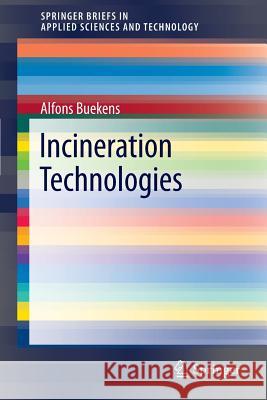Incineration Technologies » książka
topmenu
Incineration Technologies
ISBN-13: 9781461457510 / Angielski / Miękka / 2013 / 93 str.
Waste incineration is the art of completely combusting waste, while maintaining or reducing emission levels below current emission standards. Where possible, objectives include the recovering of energy as well as the combustion residues. Successful waste incineration makes it possible to achieve a deep reduction in waste volume, obtain a compact and sterile residue, and eliminate a wide array of pollutants.
This book places waste incineration within the wider context of waste management, and demonstrates that, in contrast to landfills and composting, waste incineration can eliminate objectionable and hazardous properties such as flammability and toxicity, result in a significant reduction in volume, and destroy gaseous and liquid waste streams leaving little or no residues beyond those linked to flue gas neutralization and treatment. Moreover, waste incineration sterilizes and destroys putrescible matter, and produces usable heat. Incineration Technologies first appeared as a peer-reviewed contribution to the Encyclopedia of Sustainability Science and Technology. It provides detailed treatment of the challenges of this technically complex process, which requires huge investment and operating costs, as well as good technical skills in maintenance and plant operation. Particular attention is paid to technologies for ensuring the complete burn-out of flue gas and residues and for controlling the resulting pollutants.










